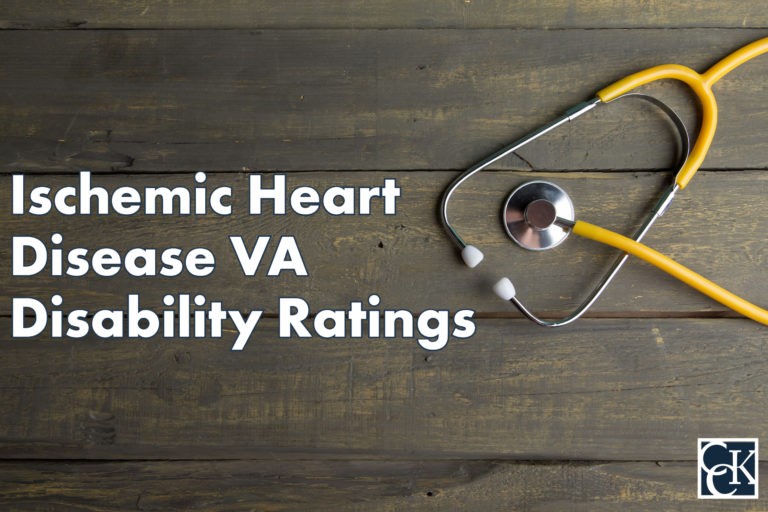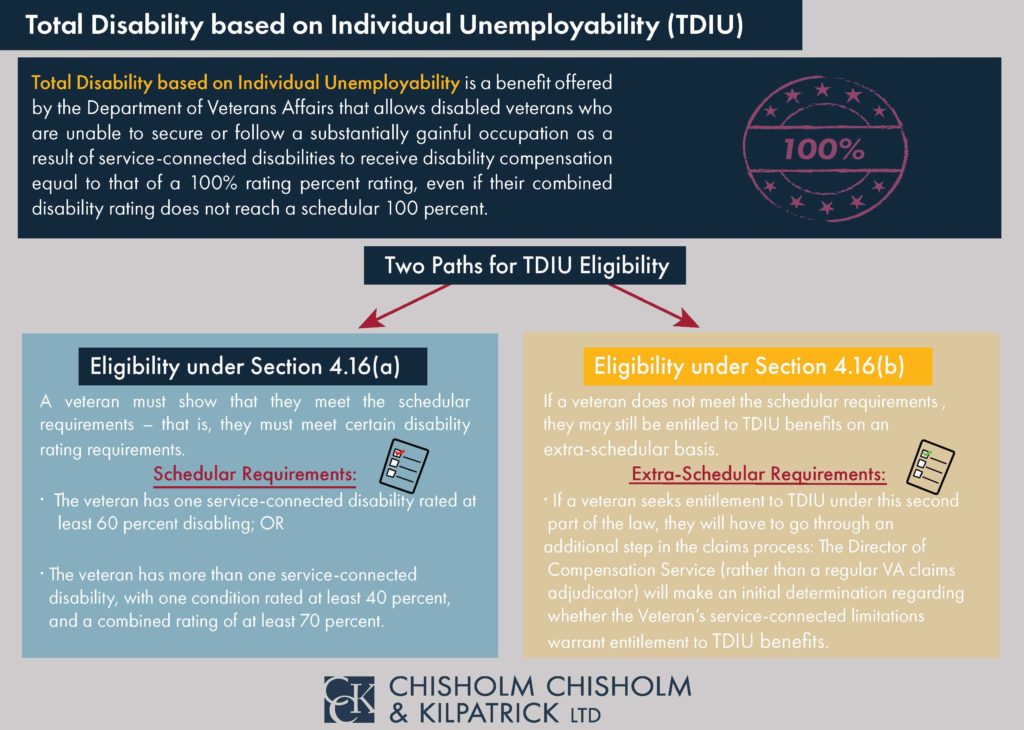Ischemic Heart Disease and VA Disability Compensation

CCK Law: Our Vital Role in Veterans Law
What is Ischemic Heart Disease?
Ischemic heart disease, also known as coronary artery disease, is the term given to heart problems caused by narrowed heart arteries. When these arteries are narrowed, less blood and oxygen reach the heart muscle, leading to severe complications. This condition is typically caused by a buildup of cholesterol plaque in the arteries. Symptoms of ischemic heart disease include the following:
- Chest pain
- Shortness of breath
- Dizziness or lightheadedness
- Feeling of indigestion or heartburn
- Nausea, vomiting, or cold sweats
- Fatigue
- Heart attack
The most common treatment options involve lifestyle changes, including increased exercise and dietary restrictions, medications, and in some cases, surgery.
Ischemic Heart Disease and Agent Orange Exposure
In July 2009, the Health and Medicine Division (formally known as the Institute of Medicine), concluded in its report “Veterans and Agent Orange: Update 2008”, that there is suggestive but limited evidence that exposure to Agent Orange is associated with an increased chance of developing ischemic heart disease.
As a result, veterans who served in the following locations during the specified time periods and later developed ischemic heart disease are entitled to service connection on a presumptive basis:
- Veterans with “boots on the ground”, those serving on inland waterways in Vietnam, and “blue water” Navy veterans between January 9, 1962 and May 7, 1975;
- Veterans who flew or worked in C-123 aircraft during the Vietnam War era; and
- Veterans who served along the Korean Demilitarized Zone (DMZ) between September 1, 1967 and August 31, 1971
Direct Service Connection for Ischemic Heart Disease
Veterans who are not eligible for service connection for ischemic heart disease on a presumptive basis may still be entitled to VA disability compensation. In this case, veterans will have to establish service connection on a direct basis by demonstrating that their heart disease is due to their military service. This connection can be supported by treatment records, lay evidence, and a medical nexus letter.
Presumptive Service Connection
Again, veterans who served in the above locations and time periods do not have to prove a connection between their ischemic heart disease and service to be eligible for VA health care and disability compensation. Surviving spouses, dependent children, and dependent parents of veterans who were exposed to herbicides during military service and died as the result of ischemic heart disease may be eligible for VA survivors’ benefits.

Compensation and Pension (C&P) Exams for Ischemic Heart Disease
Once a veteran has filed a claim for Ischemic Heart Disease, VA will typically request a Compensation and Pension (C&P) exam. When requesting an exam, VA will usually send a letter or call the veteran, so it is important to ensure that VA has the veteran’s most up-to-date contact information. It is also important to follow up with VA to schedule the exam, as failure to attend the exam can lead VA deny the claim.
The exam is usually performed by a VA physician or a VA contracted physician. Since this is a heart condition, the examiner may be a cardiologist. Prior to the exam, the examiner will review the veteran’s c-file. The c-file should contain any documentation submitted to VA previously, as well as the veteran’s medical records and service records.
During the exam, the examiner may ask the veteran questions regarding their ischemic heart disease or their service. The examiner may also physically examine the veteran. Examiners may listen to the veteran’s heart, perform tests, or take X-rays.
VA Disability Ratings for Ischemic Heart Disease
VA generally rates ischemic heart disease under 38 CFR § 4.104 – Schedule of Ratings, Cardiovascular System, Diagnostic Code 7005. Veterans are assigned a disability rating of 10, 30, 60, or 100 percent based on the following criteria:
- “100% – chronic congestive heart failure, or; workload of 3 METs or less results in dyspnea, fatigue, angina, dizziness, or syncope, or; left ventricular dysfunction with an ejection fraction of less than 30 percent
- 60% – more than one episode of acute congestive heart failure in the past year, or; workload of greater than 3 METs but not greater than 5 METs results in dyspnea, fatigue, angina, dizziness, or syncope, or; left ventricular dysfunction with an ejection fraction of 30 to 50 percent
- 30% – workload of greater than 5 METs but not greater than 7 METs results in dyspnea, fatigue, angina, dizziness, or syncope, or; evidence of cardiac hypertrophy or dilatation on electrocardiogram, echocardiogram, or X-ray
- 10% – workload of greater than 7 METs but not greater than 10 METs results in dyspnea, fatigue, angina, dizziness, or syncope, or; continuous medication required”

Ischemic Heart Disease and Other Factors
There are additional factors that VA considers, separate from the symptoms of Ischemic Heart Disease, when making determinations about the veteran’s condition. Usually, VA will take into consideration whether the veteran has had any heart procedures, and if these procedures qualify the veteran for a higher rating.
Following heart surgery, veterans can receive temporary 100 percent while they recover. Surgeries can include:
- Coronary artery bypass grafting
- Heart valve repair or replacement
- Insertion of a pacemaker
- Heart transplant
VA Individual Unemployability (TDIU) and Heart Conditions
Total disability based on individual unemployability is a VA disability benefit that compensates veterans at the 100 percent rating level, even if they may not regularly meet the criteria for the 100 percent level. Typically, the veteran must be unable to obtain or maintain substantially gainful employment in order to qualify for TDIU. If a veteran is prevented from working due to their Ischemic Heart Disease, they may be eligible for TDIU.
Generally, there are two pathways a veteran can take when seeking TDIU:
- 38 CFR § 4.16a (“Schedular”) – For this form of TDIU, the veteran must have:
- One condition rated at minimum 60 percent OR
- two conditions that can be combined to reach 70 percent, where one condition is at minimum 40 percent
- 38 CFR § 4.16b (“Extraschedular”) – This form of TDIU is for veterans who may not be able to achieve the ratings necessary for schedular TDIU but are still unable to obtain substantially gainful employment on account of their conditions.
- In this instance, the veteran must prove that their condition uniquely hinders their ability to obtain substantially gainful employment and therefore should not be rated on the standard disability rating criteria.
Veterans with Ischemic Heart Disease may qualify for TDIU if it has been rated at 60 percent or higher, or their rating can be combined with a rating for another condition to exceed 70 percent.
Was Your VA Disability Claim Denied?
The experienced, VA-accredited attorneys and advocates at CCK have successfully represented over 10,000 veterans and their families. Contact us today for a free case evaluation at 800-544-9144.
About the Author
Share this Post

